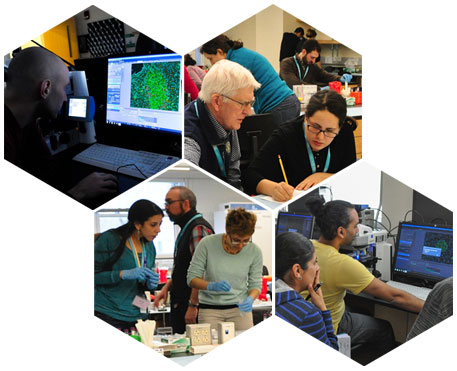Meetings and CoursesThe Histochemical Society hosts a number of annual meeting sessions, workshops and courses at various events with our partnering organizations. From informative sessions held at Experimental Biology to smaller course settings at Marine Biology Laboratories, HCS has multiple opportunities throughout the year to learn more about Histochemistry and Cytochemistry. HCS also offers multiple award opportunities to these events. Learn more about HCS awards.
Scientific MeetingsThe Histochemical Society hosts an annual meeting comprised of scientific plenary talks and symposia, student poster sessions, and an awards presentation and business meeting. The scientific sessions are developed by HCS members of the HCS Program Committee, in conjunction with our host society, bringing together experts at the forefront of research in the fields of immunohistochemistry, cell biology and pathology. Since becoming a FASEB society in 2011, the HCS annual meetings have been held at Experimental Biology as a guest of another FASEB society. The annual Experimental Biology meeting is among the largest biomedical/research meetings globally, and attracts 12,000 - 15,000 biomedical scientists. This venue provides our members with many exciting sessions that span a broad spectrum of biomedical research fields. CoursesThe Histochemical Society participates an Immunohistochemistry and Immunofluorescence (IHCIF) course most recently taught in conjuction with BioTrac at Montgomery College in Germantown, MD. This newly revised IHCIF course gives participants extensive hands-on experience with immunohistochemical techniques and a broad range of microscopy imaging modalities. The course emphasizes in-depth theory, didactic lectures, small group discussions, troubleshooting, and informal interactions among faculty and participants. This 4.5-day laboratory short course is ideal for experimental and translational research scientists, diagnosticians, and technical staff who are new to immunohistochemistry and immunofluorescence or those with experience who aim to take their skills to the next level. Our faculty are expert practitioners with diverse backgrounds in terms of the theory and application of these techniques as well as microscopy. Faculty to student ratios are low (1:3 or better) to maximize participants’ experience at the course and foster networking opportunities during and beyond the course.
|

